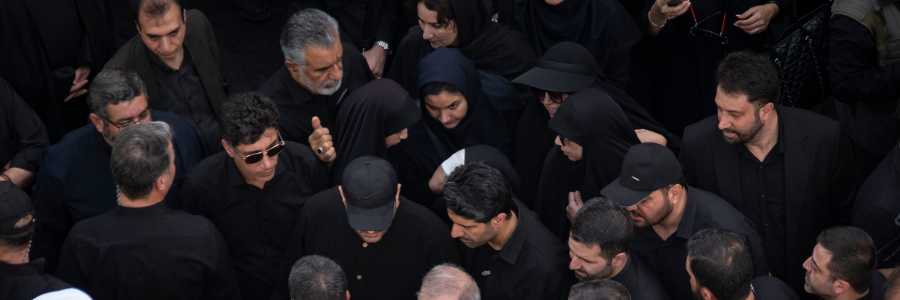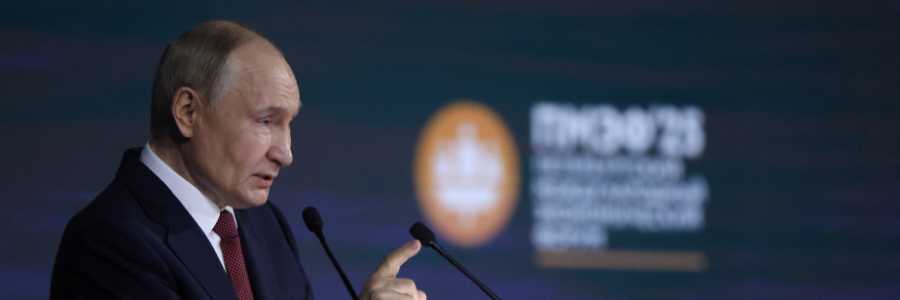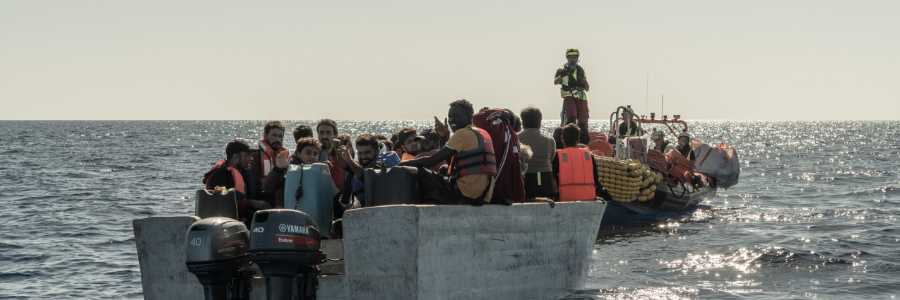PRIO Comments offer reflections and analyses on peace and conflict research and feature contributions from PRIO researchers and guest writers.
Tuesday, 2 Dec 2025
Flaws in Putin’s art of no-deal for peace become apparent
Flaws in Putin’s art of no-deal for peace become apparent
Wednesday, 12 Nov 2025
Talks on peace deal for war against Ukraine can still rebound
Talks on peace deal for war against Ukraine can still rebound
Tuesday, 28 Oct 2025
Putin returns to brinksmanship after new U.S. sanctions
Putin returns to brinksmanship after new U.S. sanctions
Tuesday, 21 Oct 2025
Putin–Trump call stalls Tomahawks but reactivates ceasefire discussions
Putin–Trump call stalls Tomahawks but reactivates ceasefire discussions
Tuesday, 14 May 2024
Pandemic Aftermath: Reflecting on the Value and Compensation of Essential Workers
Pandemic Aftermath: Reflecting on the Value and Compensation of Essential Workers
Monday, 14 Feb 2022
What Happens to Childhood Vaccine Rates in Conflict Zones? This Analysis Found Some Surprises
What Happens to Childhood Vaccine Rates in Conflict Zones? This Analysis Found Some Surprises
Thursday, 13 Jan 2022
Even at Times of Crisis, Children Must Go to School
Even at Times of Crisis, Children Must Go to School
Thursday, 30 Sep 2021
Corona Apps – Going Global
Corona Apps – Going Global
Wednesday, 15 Oct 2025
Russia ignores global peace developments to focus on Putin’s war
Russia ignores global peace developments to focus on Putin’s war
Monday, 13 Oct 2025
María Corina Machado’s Nobel Peace Prize captures the spirit of our age
María Corina Machado’s Nobel Peace Prize captures the spirit of our age
Thursday, 9 Oct 2025
Why Trump is unlikely to win the Nobel Peace Prize
Why Trump is unlikely to win the Nobel Peace Prize
Thursday, 18 Sep 2025
Trump says he has ended six wars in six months. As a peace researcher, I’m scratching my head
Trump says he has ended six wars in six months. As a peace researcher, I’m scratching my head
Monday, 24 Mar 2025
What Now for Humanitarian Studies?
What Now for Humanitarian Studies?
Friday, 22 Nov 2024
Authorship and Involuntary Attribution: How and Why Should We Contest AI Manipulation?
Authorship and Involuntary Attribution: How and Why Should We Contest AI Manipulation?
Tuesday, 12 Mar 2024
Fake Research Is Threatening Our Democracy
Fake Research Is Threatening Our Democracy
Tuesday, 19 Dec 2023
Optics as Politics: Culture, Language and Learning with UiO ChatGPT
Optics as Politics: Culture, Language and Learning with UiO ChatGPT











































